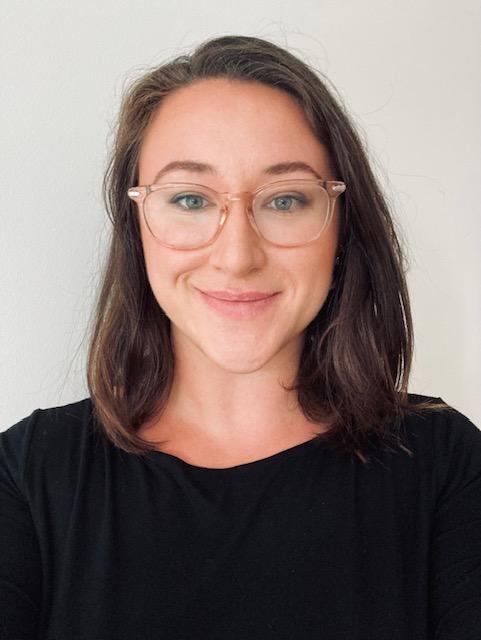
Everything you need to know about cancer screening
Peer reviewed by Dr Colin Tidy, MRCGPAuthored by Victoria RawOriginally published 24 Sept 2025
Meets Patient’s editorial guidelines
- DownloadDownload
- Share
- Language
- Discussion
Cancer often develops without noticeable symptoms, which is why the NHS offers cancer screening. Screening helps detect early signs of cancer before it becomes more advanced, giving you the best chance of successful treatment and potentially saving your life.
We’ll explain how cancer screening works, which screenings are available to you, and the different types of cancer they can help detect.
In this article:
Video picks for Information about cancer
According to Cancer Research UK, cancer screening has saved around 90,000 lives in the last five years. If you’re eligible for a free NHS cancer screening, it’s vital to take up the offer - it could be the difference between early treatment and a life-threatening diagnosis.
What is cancer screening?
Cancer screening is used to identify early signs of cancer in people who aren’t showing any symptoms.
Dr Alexandra Moorhouse, Private GP, Wellsoon, Practice Plus Group, UK explains that national cancer screening programmes mean that people who might be vulnerable to certain cancers are invited to attend a screening test.
"These tests are performed before symptoms appear," she says. "It means we can often catch cancers at an early stage, when treatment is more likely to be successful."
Dr Alexandra Moorhouse, Private GP, Wellsoon, Practice Plus Group, UK

Moorhouse advises that you attend your cancer screening, even if you feel perfectly healthy. This is because many cancers don't cause noticeable symptoms until they're more advanced.
Types of cancer screening tests
Back to contentsIn the UK, the NHS offers three main cancer screening programmes, each designed to detect specific types of cancer at an early stage when treatment is most effective.
Moorhouse explains what each screening involves, the types of cancer they detect, and the age groups and people they are intended for.
Cervical screening
Cervical screening is offered every five years to women and people with a cervix aged 25 to 64 to check for strains of human papillomavirus (HPV) that are most likely to cause cancer.
"HPV is a common type of virus that can be transmitted through sexual contact," explains Moorhouse. "There are many different types of HPV, but only some are linked to a greater chance of developing certain types of cancers - including cervical, anal, oropharyngeal, penile, vaginal and vulval cancers."
Moorhouse says that the cervical screening programme detects the presence of HPV strains more likely to cause issues by analysing a sample collected with a small brush gently swept over the surface of your cervix.
She outlines the implications of a positive or negative HPV result:
Negative – your chance of developing cervical cancer is very low, and you will be invited for your next screening in five years.
Positive – the sample will undergo further analysis to check for any abnormal changes in your cervical cells, which may indicate a higher chance of developing cervical cancer.
"If there are no abnormal cells present, then the cervical screening is repeated in one year and goes through the same process," Moorhouse explains. "If there are abnormal cells, then you are invited for a procedure at your local hospital to look more closely at your cervix. This is called a colposcopy.
"If your cervical screen tests positive for high-chance HPV, for more than two years, even if there are no abnormal cells, you will also be invited for a colposcopy, just to be safe."
Breast screening
Breast screening is offered every three years to women and people aged 50 to 71.
Moorhouse explains that this involves using a mammogram - a specialised type of X-ray - to pinpoint early signs of breast cancer.
She says: "Although people over 71 are not invited for breast screening automatically, if they wish to continue to have screening every 3 years, they can arrange this through their local breast screening service.
"People under 50 who are concerned about having a high chance of breast cancer should talk to their doctor about further investigation, as this sits outside the usual national screening programme."
Bowel screening
Bowel screening is offered every two years to people aged 50 to 74. This is done at home using a simple test kit that arrives by post.
"Bowel cancer screening uses something called a faecal immunochemical test (FIT)," says Moorhouse. "It involves sending a small sample of your poo using the kit provided to be tested. This is to detect tiny amounts of blood in your poo, often far too tiny for people to easily see, that could be a sign of bowel cancer."
She highlights the implications of a positive or negative FIT result:
Negative - your chance of bowel cancer is low and you will be re-screened every two years.
Positive - you are referred for an urgent colonoscopy, where a small camera is inserted into your bowel to look for possible sources of bleeding and any signs of cancer or pre-cancerous changes.
Moorhouse adds that if you wish to be screened beyond the age of 75 you can contact the bowel cancer screening helpline to access a FIT kit.
"If you are concerned that you have symptoms that might be suggestive of bowel cancer at any age, do not wait for your screening kit," she advises. "Approach your doctor to discuss the best course of action."
If you do not have a permanent postal address, you can arrange for a FIT kit to be sent to your local surgery, where you can collect it.
Other forms of cancer
Some types of cancer screening are not part of national programmes but may be available through your local surgery.
Moorhouse says: "These include screening for prostate cancer in men who are either concerned about their chance of developing it, or who have new urinary symptoms.
These symptoms can include:
Difficulty peeing.
Noticing blood in your pee.
This type of screening can be discussed on a case by case basis with your doctor who can recommend whether or not it is necessary.
Continue reading below
Benefits of cancer screening
Back to contentsThe greatest benefit of cancer screening is that it can detect signs of cancer early, so your treatment can start sooner, when it’s more likely to be successful.
Moorhouse explains that in some cases - such as bowel or cervical screening - it can even detect pre-cancerous changes that can be addressed before cancer develops.
"Screening also offers reassurance, giving people peace of mind when results are normal," she says. "Certain cancers - such as cervical, bowel and breast - show a clear benefit from screening, with earlier detection linked to significantly higher survival rates."
Early detection of cancer through screening can potentially save your life. When cancer is found at an earlier stage, it’s usually smaller, less likely to have spread, and more responsive to treatment - making successful outcomes far more likely.
According to Moorhouse, screening has been shown to significantly reduce the number of deaths for some cancers such as breast, bowel, and cervical cancer.
"Screening is especially valuable in these cancers because they often don't cause symptoms until the more advanced stages," she says. "It can sometimes detect cancer before it even develops. That is why taking part in routine screening - even when you feel well - is so important."
Moorhouse emphasises that screening also offers peace of mind, knowing you've taken a proactive step and that your current chance of developing cancer is low. And if something is found, catching it early means you’ll have access to a wider range of treatment options, which can significantly improve your chances of recovery.
Where can I get a free cancer screening?
Cancer screening is free through the NHS, and you’ll receive an invitation by post automatically when you become eligible - based on your age and the national screening schedule.
"If a letter is missed or someone thinks they may be overdue, a quick call to your surgery can check and help you rebook," says Moorhouse. "Cervical screening appointments can also be booked directly at most surgeries, even without a reminder letter.
"Likewise, breast screening letters are sent in the post to eligible people, inviting them to make a screening appointment. Bowel cancer screening FIT kits are sent out and returned by post."
If you believe you're eligible for cancer screening but haven’t received a screening invite, contact your local breast screening service. For bowel cancer screening, contact the bowel cancer screening helpline on 0800 707 6060.
How do you get screened for cancer?
Back to contentsWhen cancer screening starts depends on national guidelines and the age at which each test becomes available to you.
Moorhouse explains: "In the UK, NHS cervical screening typically starts at age 25, and usually people who are eligible will receive a letter just before their 25th birthday.
"Breast screening is offered every three years to women starting at age 50, although there are trials looking at starting this earlier. Bowel cancer screening typically starts at 50 also."
Be sure to read the details in your screening invitation carefully, and consult your doctor if you have a family history of certain cancers. Some people may require cancer screening outside the routine national programme or at an earlier age than typically recommended.
Neurofibromatosis type 1
Neurofibromatosis type 1 (NF1) is a genetic health condition that causes tumours to grow on nerves and skin. People with NF1 have a higher chance of developing other health conditions - including certain types of cancer.
Because of this increased chance, the NHS recommends that women with NF1 have a yearly mammogram starting at age 40 - earlier than the standard recommended age of 50 for the general population.
If you have NF1 and request a mammogram before age 50 but are refused, it’s important to know that you are entitled to this screening. Be persistent and make sure your healthcare provider follows the NHS guidance, or ask to be referred to a specialist.
Private cancer screening
If you're worried about developing cancer and don’t want to wait for a routine invitation, you can choose to pay for a private screening.
Moorhouse explains that, unlike NHS screening programmes - which have specific age ranges and eligibility criteria - private healthcare providers can often offer scans based on personal choice or individual factors.
"For example, if you have a strong family history of cancer or are experiencing unusual symptoms but don't yet meet the age threshold for NHS screening," she says.
Continue reading below
Consult your doctor
Back to contentsIt's completely natural to feel concerned about developing any of the cancers mentioned above - or those not currently covered by national screening programmes, such as prostate or skin cancer.
Moorhouse advises that if you're looking for some peace of mind, you can always speak to your doctor. They can help assess your symptoms and arrange any relevant checks if needed.
Patient picks for Information about cancer

Cancer
8 tips to help reduce your cancer risk at any age
Cancer in people under 50 has been increasing since the 1990s - and has risen by 79% over the last thirty years. Changes in diet and other lifestyle factors are playing a big part in this rise. We explore the lifestyle habits thought to be most important in reducing your risk of cancer.
by Lawrence Higgins

Cancer
Cancer symptoms you should never ignore
When it comes to unexplained medical symptoms, it's easy to bury your head in the sand and ignore them, especially if they're a bit embarrassing to discuss. But getting them checked out by a doctor could end up saving your life. Here are the cancer symptoms you should never ignore.
by Lynn Stephen
Continue reading below
Article history
The information on this page is peer reviewed by qualified clinicians.
Next review due: 24 Sept 2028
24 Sept 2025 | Originally published
Authored by:
Victoria RawPeer reviewed by
Dr Colin Tidy, MRCGP

Ask, share, connect.
Browse discussions, ask questions, and share experiences across hundreds of health topics.

Feeling unwell?
Assess your symptoms online for free
Sign up to the Patient newsletter
Your weekly dose of clear, trustworthy health advice - written to help you feel informed, confident and in control.
By subscribing you accept our Privacy Policy. You can unsubscribe at any time. We never sell your data.